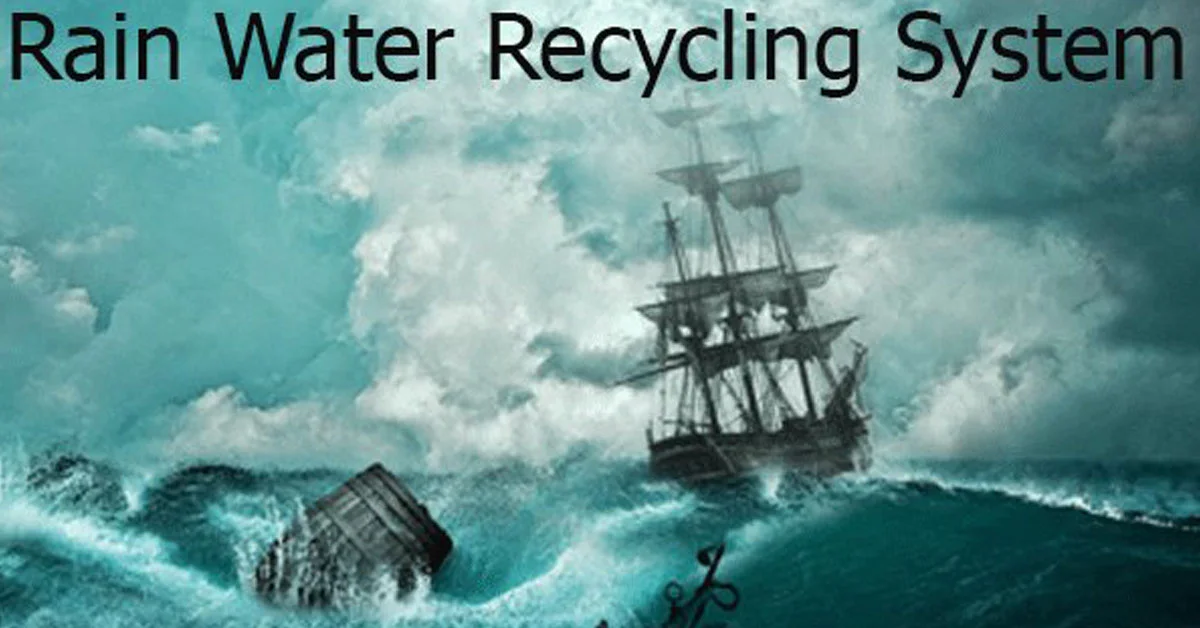Introduction to Rainwater Recycling Systems
In the quest for sustainable living and eco-friendly practices, rainwater recycling systems have emerged as a game-changer. These innovative systems have the potential to significantly impact our environment, water conservation efforts, and even reduce utility bills. In this article, we will delve deep into the world of rainwater recycling and explore its incredible potential.
The Environmental Impact of Rainwater Recycling
Rainwater recycling is more than just a buzzword; it’s a powerful tool in our fight against water scarcity. By collecting and reusing rainwater, we reduce the demand on traditional water sources, thus conserving water for future generations. Additionally, this process minimizes stormwater runoff, which can otherwise lead to pollution in our rivers and oceans.
How Rainwater Recycling Works
Rainwater recycling systems are remarkably straightforward. They collect rainwater from rooftops or other catchment areas, filter and store it in tanks, and then distribute it for various uses. This sustainable water source can be used for watering gardens, flushing toilets, and even as a potable water source with the right treatment.
Benefits of Rainwater Recycling
The benefits of rainwater recycling are multifaceted. Not only does it reduce your water bills, but it also lessens the strain on municipal water supplies. This practice also contributes to a reduction in flooding and erosion. Moreover, using rainwater for irrigation can lead to healthier, more vibrant gardens and landscapes.
Rainwater Recycling Systems for Residential Use
For homeowners, rainwater recycling is an appealing prospect. It’s not just for the environmentally conscious; it can be a practical solution to save money and reduce the environmental impact of your household.
Rainwater Harvesting Methods
There are various methods for harvesting rainwater, such as roof catchment systems, ground catchment systems, and rain gardens. Each has its unique advantages and suitability for different environments.
Installing a Rainwater Recycling System
Installing a rainwater recycling system may seem daunting, but with the right guidance and equipment, it can be a straightforward process. We’ll walk you through the steps involved and offer some tips to make the installation smooth.
Maintenance and Sustainability
Ensuring your rainwater recycling system operates efficiently requires regular maintenance. We’ll discuss some best practices to maintain your system and keep it sustainable for the long term.
Commercial and Industrial Applications
Rainwater recycling isn’t limited to residential use. It plays a crucial role in commercial and industrial settings as well.
Rainwater Recycling in Agriculture
Agriculture relies heavily on water, and rainwater recycling can offer substantial benefits to this sector. We’ll explore how this method can help farmers conserve water and reduce costs.
Rainwater Recycling in Manufacturing
Manufacturing processes can be water-intensive. Rainwater recycling can be a sustainable solution for manufacturers to reduce water consumption and minimize their environmental footprint.
Challenges and Considerations
While rainwater recycling offers many advantages, there are challenges and considerations that need to be addressed.
Regulations and Permits
Understanding local regulations and obtaining the necessary permits is crucial when installing a rainwater recycling system.
Cost Analysis
We’ll break down the costs involved in setting up a rainwater recycling system and provide insights into the potential return on investment.
Conclusion
In conclusion, rainwater recycling systems are not just changing the game; they are rewriting the rules. These systems hold the key to a sustainable future, reducing our environmental impact and promoting responsible water usage.
Rainwater recycling and the pivotal role of forests contribute to mitigating climate change impacts while addressing freshwater resource challenges in Pakistan.
Follow us on Facebook

FAQs
- What is rainwater recycling, and how does it work?
- This question aims to provide a basic understanding of rainwater recycling systems.
- Why is rainwater recycling important for sustainability?
- This question addresses the broader significance of rainwater recycling in the context of environmental sustainability.
- What are the benefits of using rainwater recycling systems?
- This question explores the advantages and positive outcomes associated with rainwater recycling.
- Can I use rainwater for drinking and cooking after it’s been recycled?
- This is an important safety concern, as it pertains to the quality of recycled rainwater.
- Are rainwater recycling systems suitable for residential use, and how can I install one?
- This question is for individuals interested in implementing these systems in their homes.
- What are the environmental impacts of rainwater recycling?
- This question delves into the ecological benefits and how these systems contribute to a greener planet.
- Do I need special permits or approvals to install a rainwater recycling system?
- This question deals with legal and regulatory considerations.
- Are there any financial incentives or rebates available for adopting rainwater recycling systems?
- This question explores potential cost-saving opportunities.
- Can rainwater recycling systems be retrofitted into existing buildings?
- This addresses the adaptability of these systems for older structures.
- What maintenance is required to keep a rainwater recycling system efficient and sustainable?
- This question covers the upkeep and long-term sustainability of such systems.
- How does rainwater recycling impact water conservation efforts on a larger scale?
- This question looks at the broader implications and contributions of these systems.
- What are the challenges and considerations when implementing rainwater recycling on a commercial scale?
- This pertains to businesses and industries looking to adopt these systems.
- Can rainwater recycling systems help in agricultural practices?
- This question is directed at the agricultural sector, where water is a critical resource.
- What is the return on investment for rainwater recycling systems, and how do I calculate it?
- This addresses the financial aspects of implementing these systems.
- Are there any potential risks or drawbacks associated with rainwater recycling systems?
- This question helps provide a balanced view of the subject, addressing potential concerns.

